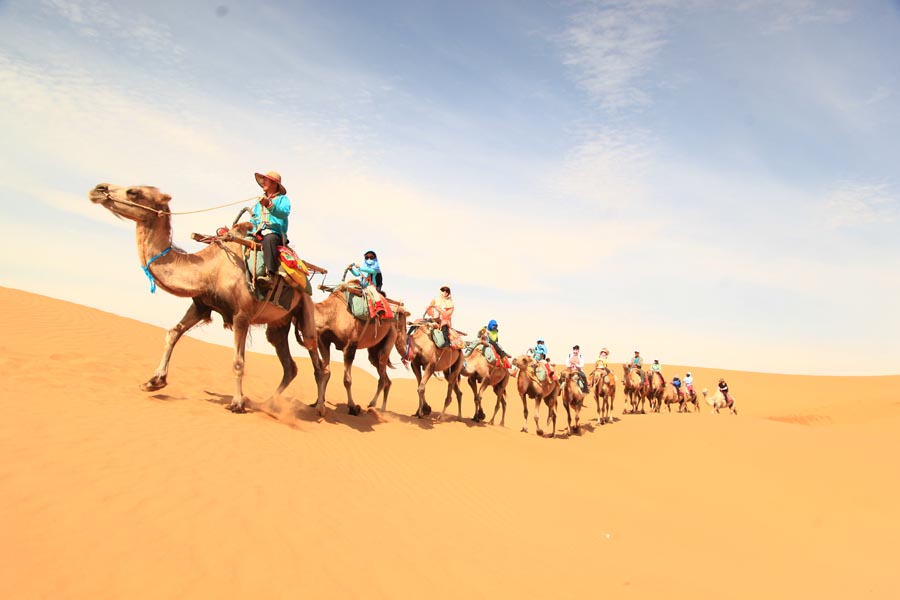Summer camps, study tours turn popular with Chinese parents


Spending over 20,000 yuan ($2,911) to send a 10-year-old child to a 10-day summer camp may appear a steep price for most Chinese parents. But for many like Jinan-based Zhao Qi, a white collar worker, the price is worth it despite the fact that it is four times the average monthly salary in the city in Shandong province.
"We believe that the price is totally worth it considering that the curriculum focuses on STEM(science, technology, engineering, and math) and critical thinking, essential skills in today's work environment. For instance, children are trained in real-life scenarios, like how to 'make' water with limited resources as if they are living in outer-space, to learn to find problems and solve them. The learning experience is just not quantifiable," Zhao said.
Spurred by the growing demand for children's quality education, many Chinese parents are now willing to spend money on camp education and study tours for their children, making the industry a booming market with great potential.
The total value of the study tour and camp education market was about 94.6 billion yuan in 2018, according to data from New Oriental Global Study Tour and iResearch. The industry is expected to see a 20 percent compound annual growth and reach a scale of 172.5 billion yuan by 2021.
Lyu Senlin, founder and chief researcher at industry consultancy Learneasy Times Online Education Research Institute, said there is enough potential for growth as the industry becomes more flexible.
"Other than the traditional forms of camp education and study tours like those with STEM themes, there are several new approaches like the Wushu (martial arts)-themed camps aimed at developing children's interests," Lyu said.
"But science-themed camp education and study tours are still the top choices for parents and children," he said.
A rough industry estimate shows that the number of participants in camp education and study tours amounted to about 31.21 million in 2018, with 30.16 choosing domestic services, and about 1.05 million choosing to send their children overseas. Children who are studying at elementary and middle schools accounted for the majority of participants, said a report by China Business Journal.
The rapidly developing market has also been backed by a slew of favorable policies. According to China Business Journal, an increasing number of local governments have rolled out measures, such as encouraging schools to organize study tours and making it an important indicator in evaluating students' school performances, after the central authorities reiterated the importance of promoting study tours in 2016.
The large market potential has also attracted interest from the investing community. By the end of last year, nearly 30 startup companies in the education and study tour segment had gained pre-Series A funding, according to data from Chuanxibang, a marketing and communication service provider in the education industry.
Jiang Feng, co-founder of the Qinghai-based Mars Camp which has been developed by a Beijing-based company with the same name, said they are looking for investment to sustain their investment of 150 million yuan to further develop lessons and enhance services.
"The booming market has been challenged by lack of proper industry regulations and standards. It's not hard for a company to make an entry into this industry, but not a lot are able to offer proper services, especially those related to safety," Lyu said.
Mars Camp, located in Cool Lake township of Haixi Mongolian and Tibetan autonomous prefecture in Qinghai province, is located in the middle of the Gobi desert and aims to emulate life in outer space and how best to cope with it.
"I think camp education, and various forms of study tours, are a great addition to my daughter's school learning, because they can easily let her know how to apply the knowledge she learned from class to real life," said Zhao from Jinan.




































